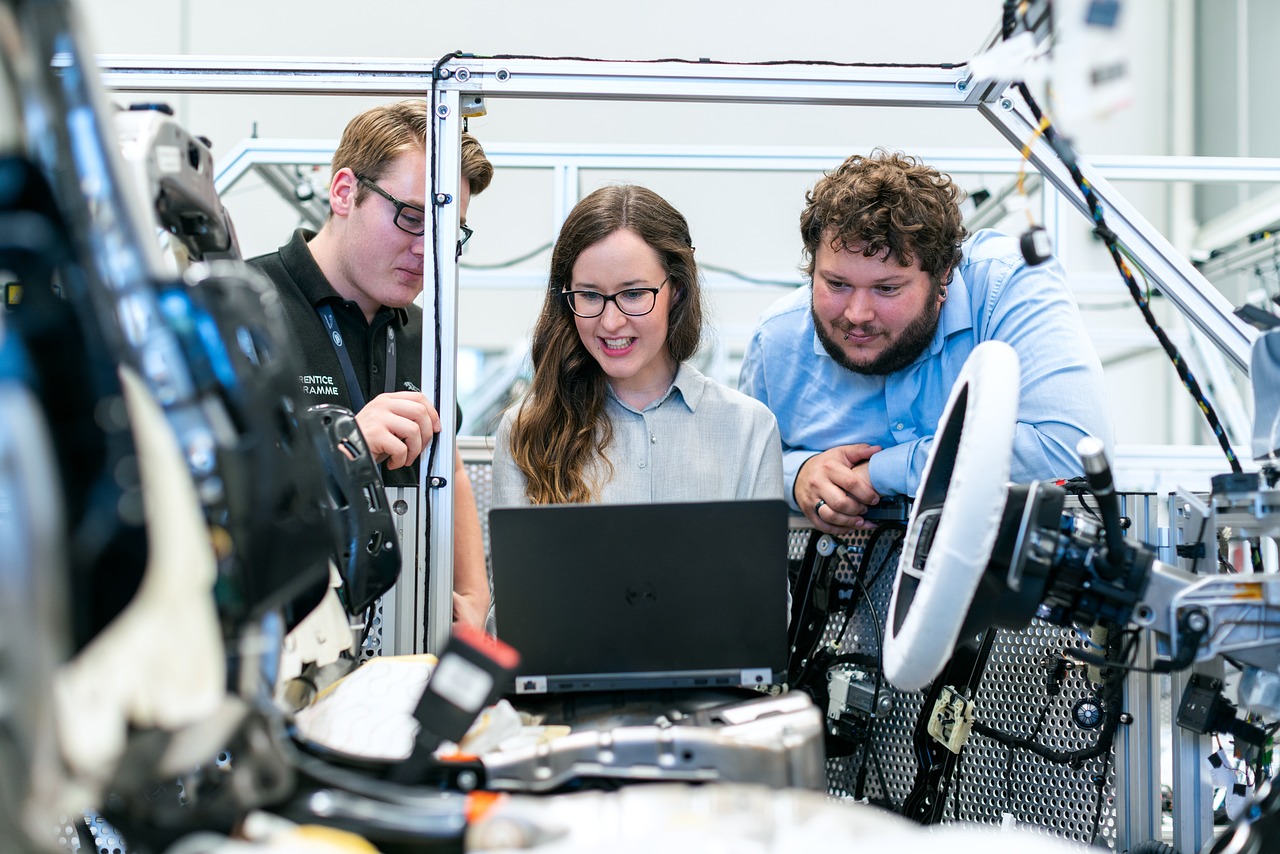The Royal Academy of Engineering's Policy wing, the National Engineering Policy Centre, unveils its flagship policy initiative, Engineers 2030. This project seeks to reconceptualise engineering and technology skills to foster a world where both humanity and the planet can thrive.

Engineers 2030 aims to:
- Determine the foundational knowledge, skills and behaviours engineers and technicians need to tackle 21st-century global challenges.
- Understand the systems, cultures, and policies currently in place in the UK to deliver this.
- Define the principles for how education and skills systems need to change to be effective in developing engineering skills to meet global challenges.
The National Engineering Policy Centre (NEPC) has initiated a significant consultation to foster agreement on the future requirements of engineering and technology, encompassing knowledge, skills, behaviours, and the necessary systems, cultures, and policies in the UK.
The Academy’s "Rethinking Engineering and Technology Skills for a Thriving World: Vision and Principles" initiative by Engineers 2030, aims to tackle a longstanding shortage of adequately trained engineers and technicians in the UK and beyond, envisioning skills tailored for a world where both people and the planet can thrive.
Engineering 2030 aims to serve as a driving force for significant transformation within the UK education and skills systems. The initiative is designed to adapt to the evolving roles and requirements of engineers amidst the expanding environmental, economic, technological, and societal challenges. It will focus on the necessary shifts in engineering knowledge, skills, and attitudes to effectively meet these changing demands.
The Current State: A Call for Change.
Despite advancements in the engineering domain, gender diversity remains stagnant at 16 and a half percent. This static figure underscores systemic challenges in recruitment and retention strategies, coupled with narrow pathways into the field that hinder the influx of fresh talent.
Additionally, pathways into engineering often appear constrained and inaccessible, leading to the impediment of new talent. The dwindling numbers of apprentices entering further education exacerbate this issue, constraining the industry’s ability to cultivate a diverse and skilled workforce.
A Vision for Diversity and Innovation.
Unlocking the full potential of engineering and technology demands a paradigm shift towards inclusivity and collaboration. It necessitates broadening access to engineering education and technical training, ensuring individuals from diverse backgrounds can contribute meaningfully. Embracing a socially progressive ethos is crucial, recognising diversity as a catalyst for addressing global challenges.
Reforming Education and Training: Building Strong Foundations.
Central to Engineers 2030's vision is a holistic reform of the UK's education and skills ecosystems. Prioritising reskilling and upskilling initiatives are essential, equipping individuals with advanced technical competencies and ethical frameworks requisite for success. Sustainability must be ingrained within engineering education, addressing pressing environmental concerns and instilling a sense of stewardship among future engineers.
Additional resources.
In addition to Engineering 2030, the Royal Academy of Engineering has unveiled two vital resources to bolster its initiatives. First, a reimagined degree map has been collaboratively crafted by the academy and Engineers Without Borders UK, aiming to redefine engineering education. Secondly, the academy has partnered with the Engineering Professions Council and Siemens to develop a sustainability toolkit. This toolkit equips academics with the necessary resources to seamlessly integrate sustainability principles into their teaching methodologies, ensuring that future engineers are well-prepared to address the complex challenges of tomorrow.
Charting a Course Forward.
As we traverse towards 2030 and beyond, the engineering profession finds itself at a pivotal juncture. By reevaluating our approaches to education, training, and collaboration, we unlock a myriad of opportunities for growth and innovation. Engineers 2030 serves as a beacon of change, guiding us towards a future where excellence, inclusivity, and sustainability are paramount. Through collective action and unwavering commitment, we can pave the way for a thriving world powered by engineering and technology.

